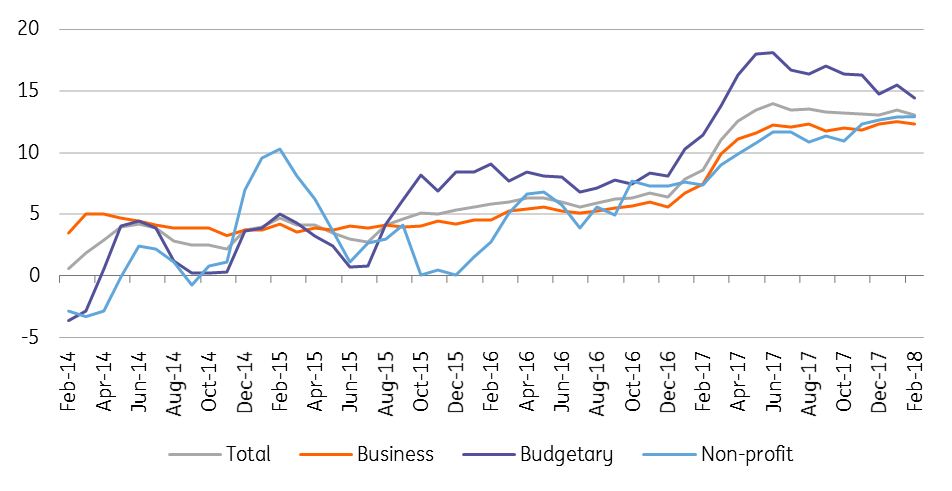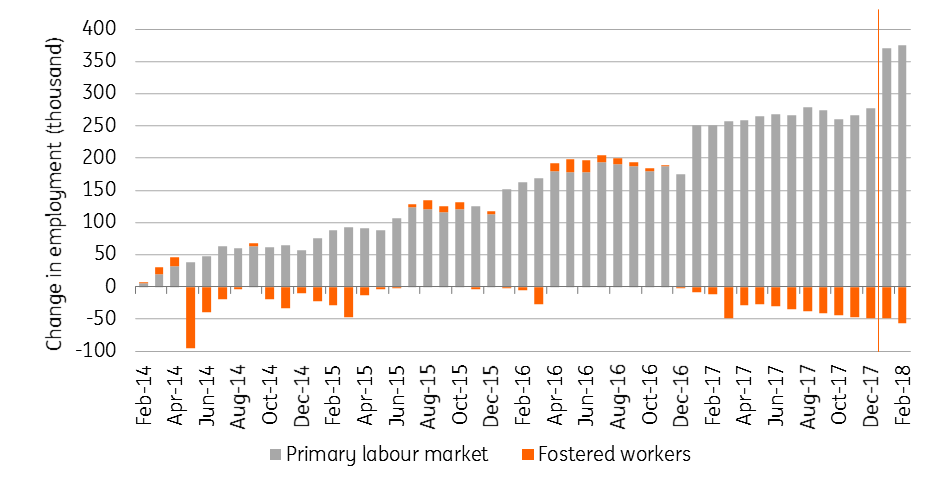Hungary: Wages on the rise
The remarkable increase of wages continued in February amid a labour shortage, wage settlements and higher minimum wages. We expect more to come
| 11.9% |
Average Gross Wages (YoY)Consensus (12.3%) / Previous (13.8%) |
| Lower than expected | |
On wages
Average gross and net monthly earnings increased by 11.9% year-on-year in February 2018, a minor downward surprise both in terms of previous data and market expectations. The big picture though has remained rosy as real net wage growth is close to double-digit territory.
Wages increased by 10.7% YoY in the business sector and by 14.5% YoY in the budgetary sector. The reasons for this remain unchanged, with the raised minimum wage for skilled and unskilled labour playing a significant role, as well as the labour shortage and the ongoing wage settlements in the public sector (mainly in utility companies). Another important factor behind the strong wage growth is the 20% YoY increase in non-regular wages.
Wage growth (% YoY, 3m-mav)

On labour demand
In the meantime, demand for labour is unbroken, as the number of workers in the primary labour market increased by 125.3k in a year. On the other hand, the number of fostered workers (employed by the government and paid less than minimum wage) decreased by 45.1k YoY to 142k. Despite the favourable trend, we need to treat the data with a pinch of salt, as the Hungarian Central Statistical Office (HCSO) has just changed its methodology, widening the base of its survey.
Evolution of labour demand (Jan-14=0)

On the near future
An acute labour shortage combined with the ongoing wage settlements and an upcoming significant disbursement of one-off bonuses in the public sector will accelerate wage growth in the short-term. Based on business rumours, we can calculate a 12-13% YoY wage increase in the private sector on average, which would put Hungary in a position to have another year of double-digit real net wage growth.
This publication has been prepared by ING solely for information purposes irrespective of a particular user's means, financial situation or investment objectives. The information does not constitute investment recommendation, and nor is it investment, legal or tax advice or an offer or solicitation to purchase or sell any financial instrument. Read more
Download
Download snap